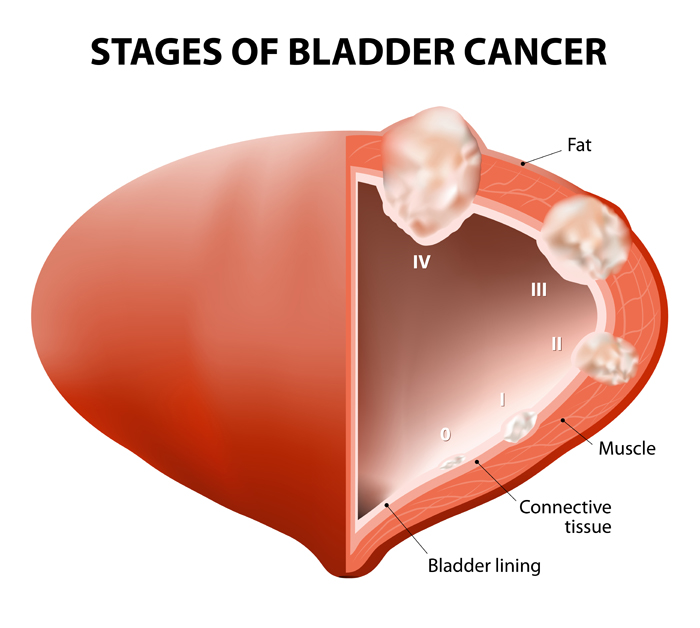Best Bladder Cancer Treatment in Alwarpet, Chennai
Minimally invasive urologic treatments are a combination of techniques done by surgeons by making minimum cuts in the skin, causing lesser pain to you during the procedure and after that.
In cases of bladder cancer, minimally invasive urological treatments are suggested when the surgery is intricate and the issue is critical. It is also a preferred form of surgery more than any open surgery because of its high success rate.
In this treatment, the surgeon does not open the skin like open surgery and operates through minor cuts made on the skin. To know more about minimally invasive urological therapies, you should search for urology hospitals near you.

Types of Minimally Invasive Urological Treatment for Bladder Cancer
- Transurethral resection (TUR) with fulguration
- Segmental cystectomy
- Urinary diversion
- Radical cystectomy
- Partial cystectomy
- Reconstructive bladder surgery
How Is a Minimally Invasive Urological Treatment for Bladder Cancer Done?
- Transurethral resection with fulguration- This surgery is highly intricate, in which a thin tube called a cystoscope is inserted into your bladder through your urethra. A small wire loop attached at the end of the tube helps in removing the tumour. Fulguration is the process in which the loop removes the tumour by burning the tumour using high-energy electricity.
- Segmental cystectomy- This procedure is done when cancer spreads from one place to the other. Only the affected segment of the bladder is removed in the procedure. The whole function of the urinary bladder remains unaffected.
- Urinary diversion- This procedure is done to change the path of urine storage and passage. It is done in cases of the spread of the tumour up to the bladder. It is one of the most challenging surgeries, but it has been proven to be done successfully in many cases.
- Radical cystectomy- This procedure is done to remove the entire urinary bladder to prevent the spreading of the tumour any further. This surgery may be done when the bladder cancer invades the muscle wall or the tumour spreads to significant parts of the bladder. In some cases, the adjacent infected organs are also removed along with the infected bladder. A small incision will be made in your bladder to remove the bladder along with other infected organs.
- Partial cystectomy- This procedure removes the part of the bladder that gets infected due to the tumour. Partial cystectomy will not remove the significant parts of your bladder, and hence the entire function is reserved.
- Reconstructive bladder surgery- This procedure is done when your bladder is completely lost due to the tumour and had to be removed. A small part of your intestine will be attached to the ureter, and the stoma of the kidney is linked near the belly button. A small leak-proof bag collects urine when connected to the stoma, and the whole process is called a urostomy.
Who Qualifies for Minimally Invasive Urological Treatment in Bladder Cancer?
- If you have a moderate to severe case of Benign-prostatic hyperplasia(BPH)
- BPH is not getting cured
- If you have urinary tract obstruction
- If you see blood or stones in the urine
- If your prostate is bleeding without
- If you are having issues with emptying your bladder
Why Is Minimally Invasive Urological Treatment in Bladder Cancer Done?
You can undergo minimally invasive urological treatment for bladder cancer in the following cases;
- If your intravesical BCG therapy fails to treat your bladder cancer
- If you are at risk of developing cancer again
- If your tumour spreads to the neighbouring organs
Benefits of Minimally Invasive Urological Treatment in Bladder Cancer
- Better response to surgery
- Quicker healing time/ recovery period
- Less time spent in hospital
- Lesser bleeding, discomfort and bleeding
- Less to no scars
- Least cost of surgery
Risk Factors of Minimally Invasive Urological Treatment in Bladder Cancer
- Bleeding
- Infection
- Inflammation of the abdominal wall
- Damage to nearby organs
- Clotting of blood
- Complications with anaesthesia
- A longer surgery period increases the risk of injuring other organs.
- Infections
- Leaking of urine/ problems with passing urine Gastrointestinal problems
- Sexual dysfunction
- Hormonal changes
- Reproductive health is affected sometimes
Minimally invasive procedures are not as painful as compared to open surgery. They cause more minor, more extended discomfort, and the chances of infections are also more minor. Contact a urologist near you to know more about the procedure.
Minimally invasive urological treatments for bladder cancer are safer than open surgeries. It involves limiting the number of cuts to the body, which leads to faster healing. Also, the patient doesn’t have to spend a long time in the hospital. It also helps in preventing the spread of tumours to other neighbouring organs of the body. Consult a urologist near you to know more about the procedure.
Symptoms
Our Top Specialities
NOTICE BOARD
CONTACT US
CONTACT US
 Book Appointment
Book Appointment


.svg)
.svg)
.svg)
.svg)








